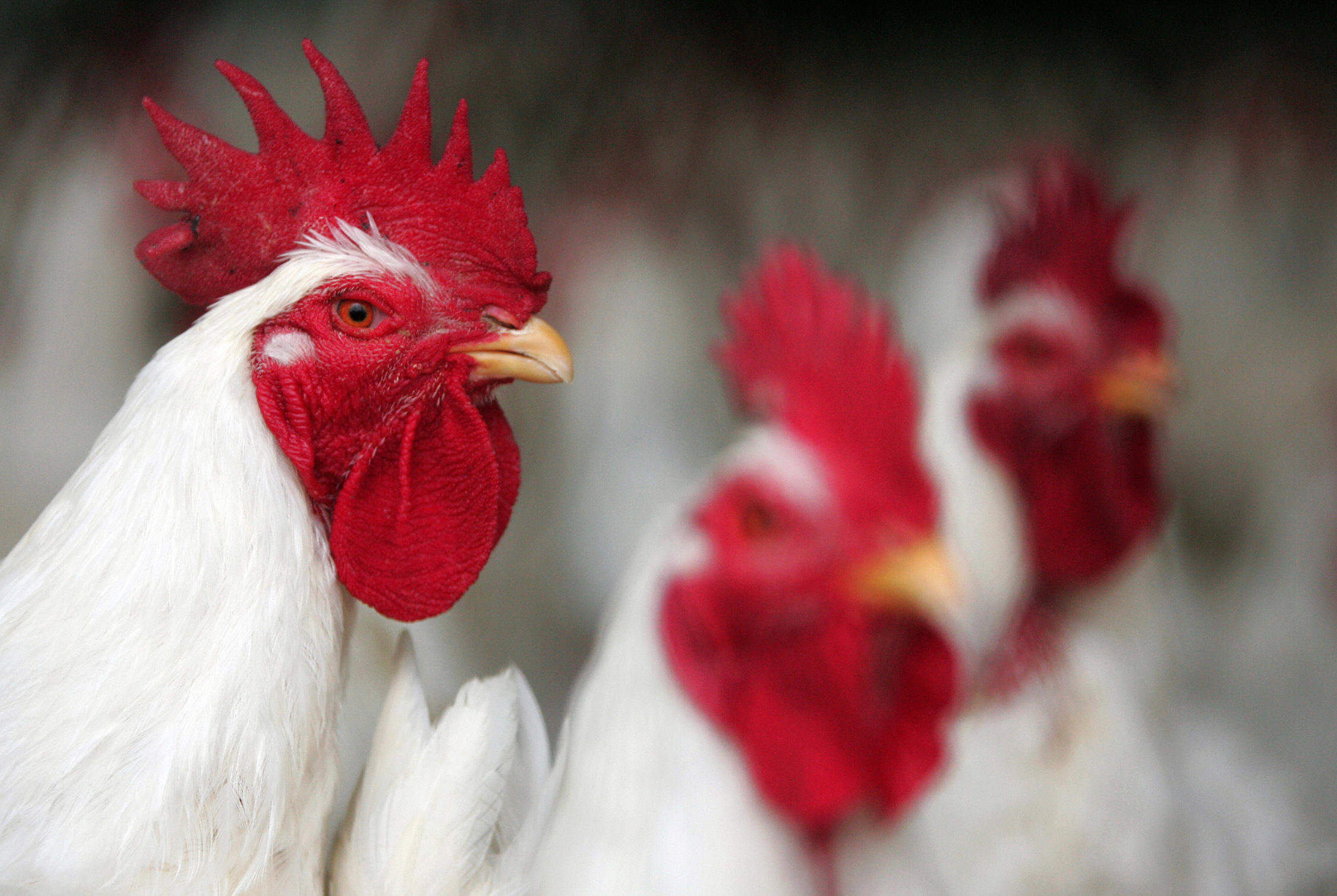
Chickens aren’t shy around the dinner table; they will eat almost anything you put in front of them (and they’ll even resort to cannibalism if they have to). So what goes in a chicken may be just as unpleasant as what comes out. Chicken odour from poultry farms, whether through the decay of chicken’s waste, or farts, is a growing concern in agricultural communities.
A study published last month in the Animal Nutrition Journal found that there’s a direct link between the dietary composition of chicken feed, and how foul-smelling the odours they emit are. In other words – a farmer can know just how bad their chickens’ farts will be, by knowing exactly what they’re fed. Sulphur is the main culprit for the infamous rotten egg smell, so it’s not surprising that organic-sulphur compounds, as well as some organic alcohols and carbonyls, are some of the major predictors of odour in chicken emissions.
Knowing this is useful, as, despite there having been several attempts to combat chicken odours from farms – such as litter treatments, biofilters, neutralising agents, air scrubbers and ozone treatment – all have proven to be far too costly and impractical. But rather than opting for fancy gadgets and gizmos and further complicating the problem, it seems reverting back to basics, by looking at the relationship between what chickens eat and and how bad they smell, seems to be one of the most viable strategies.
The link between diet and odour was studied in two seperate experiments using Ross 308-breed male chickens. In the first experiment, a total of 288 one-day-old Ross 308 males were split into two groups. Both groups were fed a common starter for ten days. For 15 more days, group one was fed no-corn wheat with canola seed and group two fed wheat-corn without canola seed. (Canola is an ingredient rich in sulphur and amino acids.) At day 22, 12 birds of a similar body weight where selected and adapted to metabolic chambers for six days at a controlled room temperature and fed their respective diets. To ensure all was well, experimental collection started at day 28 until day 42.
In the second experiment, 30 90-day-old Ross 308-breed male chickens were given three different diets: one containing only soybean as a protein, one where 60 per cent of the protein came from canola, and a diet where meat and bone meal provided 43-54 per cent of the protein. After ten days, 25 chickens of similar weight were selected and adapted to metabolic chambers, and fed accordingly until day 32.
For both experiments, chicken odour was measured using Fourier transform infrared (FTIR) spectroscopy, and, in both, important odorous compounds such as diacetyl and methanethiol were detected.
In the first experiment, group one (with canola seed) produced a higher concentration of methanethiol and lower diacetyl than group 2 (without canola seed). In the second experiment, methanethiol emission was higher in the SBM group (only containing soybean as a form of protein). The total concentration of the element sulphur was higher in SBM and CM (canola meal solvent diet) groups up to 24 days.
What this means is that chickens have to steer clear of soybean and canola seeds if they don’t want the shits. More investigation is needed to fully understand the effect the microbial metabolism of nutrients has on the smell of chicken’s farts and poop. Either way, it’s that clear small changes in a chicken’s diet can lead to a gross violation of the nostrils of the unsuspecting.





